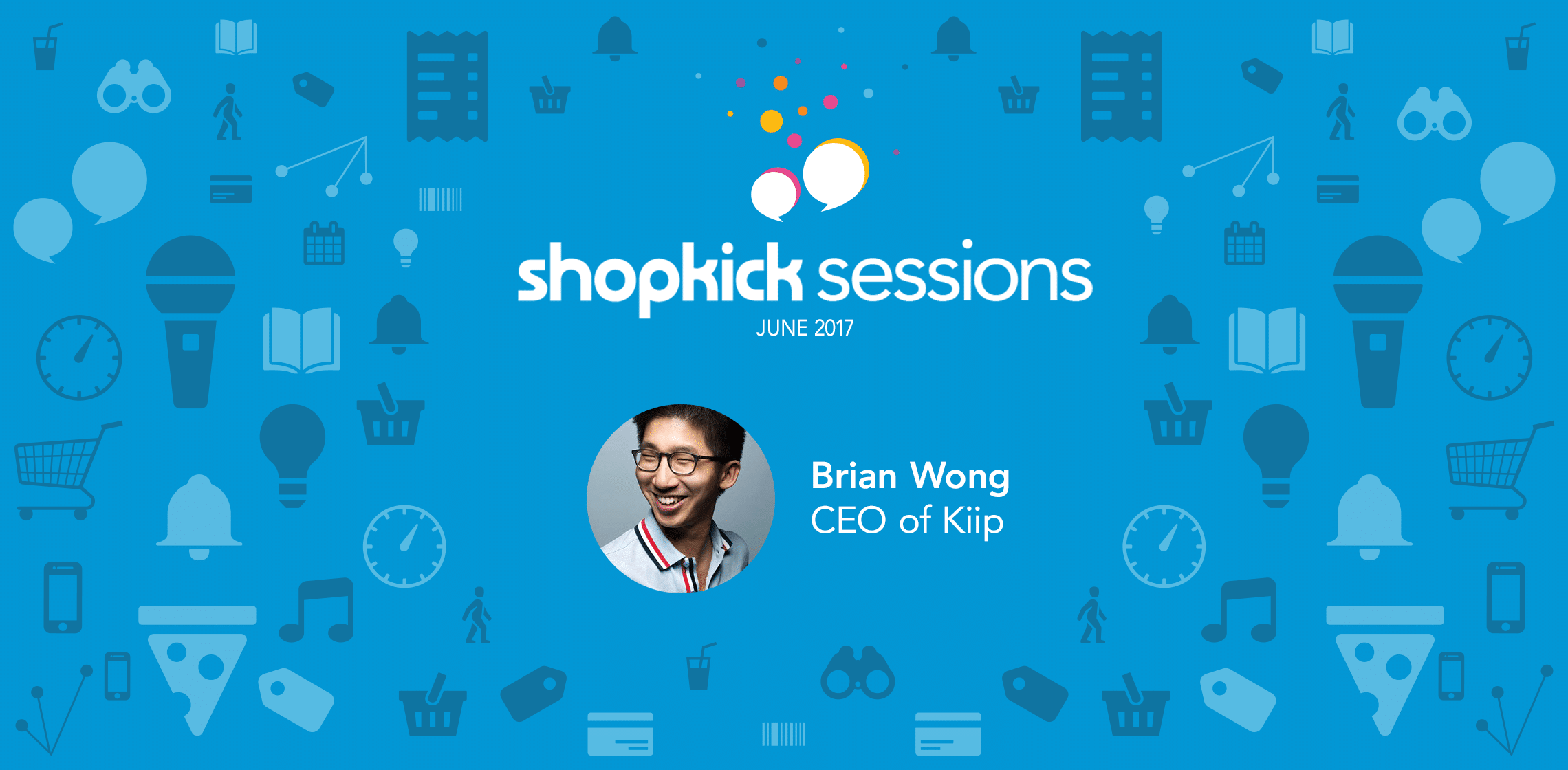The millennial generation has turned the concept of work on its head. Relationships are shifting from hierarchical boss/employee structure to more of a coaching focus with an emphasis on growth. Millennials expect work/life balance, lots of flexibility, and a collaborative culture.
Simultaneously, the explosion of big data that occurred as this group was entering the workforce has solidified a data-driven way of thinking and working across industries. Success is less about perception – how late you stay at the office or how many meetings you lead, for example. It’s based on meaningful, measurable results – and these are more available than ever thanks to the exponential growth of data.
Shopkick was fortunate to have Brian Wong, founder and CEO of Kiip and author of “The Cheat Code”, speak at our Shopkick Sessions event series. As the youngest entrepreneur ever to receive VC funding, he shared thoughts on how millennials – and managers of millennials – can get ahead, and the role of big data in business today.
Watch the full video or read some of the highlights below!
Shopkick: If you’re a millennial right out of college and entering the job market, what are skills you can leverage when you are lacking relevant work experience?
Brian Wong: I think experience by years is much less relevant in this current era where everyone has unprecedented access to information. Millennials can basically learn anything anytime they want, and they should leverage that ability to gather information and start developing their skillsets. Personal social media use also qualifies as experience. If you have 4 years of using Snapchat, that is digital experience that you can leverage to be proactive when interacting with older business executives who are trying to understand those platforms. There’s also intangible skills like passion and a youthful mindset, think like Richard Branson. It’s an asset to be consistently curious where you want to learn and question things, that’s sorely needed in the corporate world.
Shopkick: What type of company would you advise millennials to seek out initially: a startup or a more established corporation?
Brian Wong: The first company you work at is very critical. It’s the place where you get a lot of data points and valuable experiences. I learned a lot from working at a bigger more established startup, you especially learn a lot of what not to do, or what you don’t like doing. But the entrepreneurial vibe of startups is exciting, and things can happen quickly. Big companies are starting to wake up to this and breaking into the startup ecosystem. They’re learning how that engine works so they can feed off of that energy and innovation.
Shopkick: 44% of millennials expect to leave their current employers in the next two years. What’s your advice to retain top talent and keep your employees engaged? On the flipside, what would you advise a millennial to consider about before seeking a new opportunity?
Brian Wong: Engagement is a key piece to retention of younger staff. One of the biggest things to do as a CEO is to make sure your team is happy. In Silicon Valley there’s a running joke that you aren’t hiring anyone anymore, you’re just renting them, because employees jump around so much. One of the bigger tactics for retention I think centers around horizontality: people within our generation have this fear of getting stuck within a role. You must make it clear that it’s ok to swap positions, from sales to account management to design.
On the flipside, before leaving a company, millennials should make sure they’ve accomplished what they set out to do. If they’re growing and having fun, they should stay. If not, then they should get out of there.
Shopkick: Shifting gears over to Big Data. Millennials want personalized experiences and with the help of Big Data, marketers and employers are now able to deliver. How are you enabling the use of Big Data at Kiip to leverage the relationships with both marketers and consumers?
Brian Wong: At Kiip, we get a lot of data, but the quantity doesn’t matter, it’s about what we do with it. For us and improving the product, the focus is on personalizing rewards. For every company, a good data strategy revolves around that most important objective. Personalizing rewards is our primary directive, with all other initiatives laddering up to that. We don’t stray from it, because the moment you stray, it can get very distracting because there’s so many other routes we could go. If your data strategy doesn’t have a purpose, you’re losing time and efficiency trying to experiment with too many different things.
Shopkick: So with companies now relying on data to make most decisions, what happens to your gut instinct? How do you intertwine your data and your gut to make the best decisions?
Brian Wong: It’s a mixture of art and science. For data-informed decisions, you ultimately have to realize how you make decisions as a person. For me, I make a lot of decisions based on what feels right, but if that data doesn’t confirm it, then I also have learned to give it a chance. I’m not so hard-headed to the point that where just because my gut says something means we can’t follow the data. Successful leaders are those that can balance between that art and science, by tapping into the left and right brain. That’s where we get the Steve Jobs and Elon Musks of the world.
If you’d like to be notified about future Shopkick Sessions, sign up for our newsletter. To watch other events from the series, check out the YouTube playlist.

